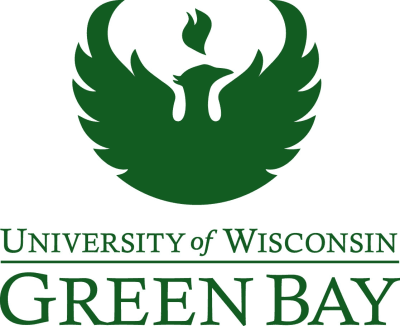
Bachelor in Environmental Sciences
University Of Wisconsin - Green Bay

Key Information
Campus location
Languages
English
Study format
On-Campus
Duration
Request info
Pace
Full time, Part time
Tuition fees
Request info
Application deadline
Request info
Earliest start date
Request info
Scholarships
Explore scholarship opportunities to help fund your studies
Introduction
The Environmental Science major prepares students to analyze, understand, and solve environmental problems.
The program of study in the Environmental Science major is interdisciplinary, emphasizing an integrated approach to knowledge in the field. Because the study of environmental problems requires a sound understanding of scientific principles, the Environmental Science major is grounded in the natural sciences and mathematics. The curriculum includes a social science component, enabling students to gain an understanding of environmental economic and policy issues. Field experiences, internships and practicums are emphasized.
This major helps to develop the following skills and abilities:
- formulate and interpret models that describe environmental processes
- facility with laboratory and field instrumentation, software for statistical analysis and modeling, taxonomic keys, and other practical skills
- design and implement research strategies and procedures to collect, organize, evaluate, and interpret data that characterize environmental systems
- characterize and analyze human impacts on the environment
- design and evaluate strategies, technologies and methods for remediation of degraded environments
- design and evaluate strategies for sustainable management of environmental systems
- access and manage data resources applicable to environmental processes and management
While many universities are just beginning to recognize the need for environmental science programs, UW-Green Bay has nearly 40 years of teaching and research experience in the field. Its program was one of the first in the nation. The interdisciplinary focus allows students to have a diverse education. They receive hands-on and practical learning experiences in both laboratory and field. A significant number of graduates of this major gain entry-level positions in the environmental science field. About one-third of these positions are in the public sector, and two-thirds are in the private sector in industries, business, and engineering consulting firms. Numerous graduates have successfully completed master's and doctoral degrees.
Faculty members are actively addressing environmental problems and their solutions at the regional, national and international levels. This activity keeps them up to date on current trends and topics in the field. They provide opportunities for undergraduates to become involved in their research projects, where students can gain valuable knowledge and experience. Faculty members are highly involved in the students' education, both inside and outside of the classroom.
Environmental Science students have access to modern computer facilities which are continually upgraded. Computing software resources emphasizing geographic information systems (GIS) and mathematical modeling and statistical analysis tools also are available. In addition to general-access computer laboratories, students can also use a science-dedicated computer laboratory.
Students wishing to gain hands-on field experiences have access to the Cofrin Center for Biodiversity which includes the 290-acre Cofrin Memorial Arboretum on campus, several natural areas in the region, the University Herbarium, and the Richter Museum of Natural History. The latter two facilities have recently moved to new and expanded space. A variety of equipment is available for environmental measurements and monitoring.
Laboratory instrumentation enhances student opportunities to perform chemical analyses which are important in environmental monitoring. Such instrumentation includes mass spectrometers, infrared and visible-ultraviolet spectrophotometers, nuclear magnetic resonance spectrometers, gas-liquid chromatographs, and high-performance liquid chromatographs. In addition to opportunities to monitor air and surface-water quality, students also have the opportunity to monitor groundwater; three wells have been drilled on campus specifically for that purpose.
As industries recognize their responsibility to help create and maintain a sustainable environment, often achieving efficiencies in the process, they create positions dealing with waste management, pollution reduction, and other environmental responsibilities. Many UW-Green Bay Environmental Science graduates find employment in these industries or go on to advanced study in environmental science or other scientific disciplines.
English Language Requirements
Certify your English proficiency with the Duolingo English Test! The DET is a convenient, fast, and affordable online English test accepted by over 4,000 universities (like this one) around the world.